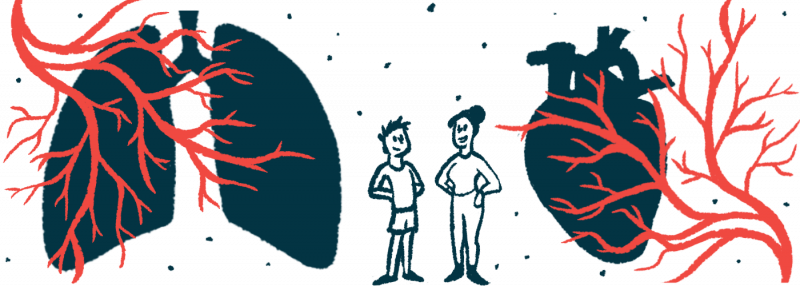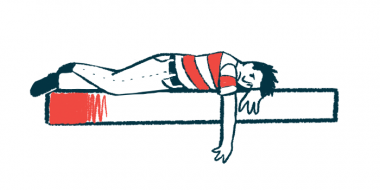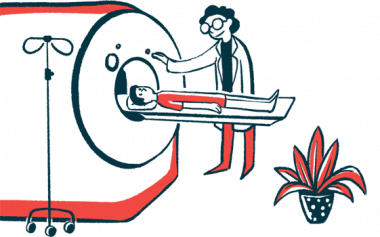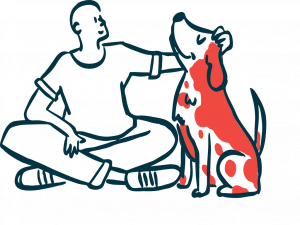 Mental Health and PH Pulmonary hypertension (PH) is a chronic and progressive disease associated with high blood pressure in the blood vessels, known as the pulmonary arteries, that supply the lungs. Life with PH can be challenging, and people living with the disease may also deal with mental health conditions such as depression and anxiety. PH progression can negatively affect patients’ autonomy in daily activities and in their work environments, often leading to lower quality of life and psychological issues. Caregivers may also face emotional stress when a loved one’s health is declining. If you feel you’re not coping well emotionally, it’s important to speak to your healthcare team. Depression can make living with PH more difficult, as the effects of stress, anxiety, lack of sleep, poor diet, and other related symptoms can exacerbate already difficult symptoms. Several studies have shown that a lower quality of life correlates with more severe depression and anxiety in PH patients, suggesting the need for specialized support to address these disorders. |
|---|
 Did You Know? A 2017 restrospective study found that patients with chronic thromboembolic pulmonary hypertension (CTEPH) have more pronounced decreases in mental health than those with pulmonary arterial hypertension (PAH). The study revealed that although both groups had lower health-related quality of life scores as well as depression and anxiety, decreases in mental health parameters were more prominent in CTEPH patients. |
|---|
“Anxiety is a daily struggle. The addition of challenging times in the world doesn’t help. Last week, I was in a funk and had Alexa play ’80s rock. The first song was ‘Crazy Train.’ Yep, Ozzy and his lyrics, ‘I’m going off the rails of the crazy train,’ hit the nail on the head.There are days when I am riding those rails right alongside Ozzy. Thankfully, it’s not every day. Anxiety likes to pop in and out, and its many manifestations can be challenging to navigate.”— Jen Cueva, columnist, “Worth the PHight” |
|---|


Depression
A number of factors present in the lives of PH patients can put them at a higher risk of developing depression.
Guilt is a common symptom of depression in PH patients, as they start to feel guilty that they can no longer do as much as they used to. Increased financial, physical, and emotional dependency on friends and family also may cause guilt in PH patients. Unresolved feelings of guilt can be a trigger for depression.
Fear can also be a factor. Concentrating on the worst possible outcome can cause patients to become very depressed about their future. A diagnosis can be daunting, sometimes making patients feel like their lives are spinning out of control. While these feelings are normal, the key to treating depression is recognizing the signs and seeking help.
Here are some of the most common symptoms of depression:
|
Feeling sad or numb |
Loss of interest in activities and hobbies |
Significant changes in weight or appetite |
|---|---|---|
|
Changes in sleeping patterns |
Feeling worthless or excessively guilty |
Loss of concentration |
|
Feeling alone |
Inability to relax |
Recurrent thoughts of death |

 Did You Know? Results from previous studies have shown that the prevalence of depression in PAH patients ranges between 7.5% and 53%, which is significantly higher than that of the general population. Anxiety and panic disorders occur in 19% to 51% of patients. |
|---|
“This form of depression was all-encompassing, and this time I could not hide it. In fact, my medical file had ‘suicide risk’ in big letters on the outside of it. Nurses were careful to never leave me unattended. My doctors would try to convince me to see a psychiatrist or take anti-depressants at every appointment. I tried taking Ativan (lorazepam) for a bit, but it felt more dangerous for me to have access to this medication given my shaky mental state.”— Serena Lawrence, columnist, “In Life With PH” |
|---|
 Tips to Help Ease Anxiety Leading Up to a Surgery Just the thought of surgery sends columnist Brittany Foster’s anxiety into overdrive. She shares some tricks below to help calm racing thoughts. She writes: Reach out for support It has always been hard for me, especially when I am going through a particularly stressful time, to reach out for support and ask for help. When I am feeling physically and mentally weak, I shut down and distance myself from those who care about me. It takes reaching out to the right people that support me to realize how helpful it is to have people there to vent to. Before a surgery or procedure, hanging out with friends and watching a movie, going out for coffee or lunch (if I feel up for it), or just sitting and talking make a positive difference in my mindset. Write down any questions and concerns In the past, my mom has kept notebooks of questions, thoughts, and comments that she wants to go over with a doctor before the surgery. Now that I’m 27, I have prepared myself to take over some of this responsibility. It has always been hard for me to ask questions the day of the surgery. When I am worried and in an anxious state of mind, it’s difficult to get my thoughts together to think of any concerns. If I allow myself time before the surgery to think about this with a clearer head, it gives me some sense of control and makes me feel like an important part of my treatment team. Utilize positive distractions For the few days or week leading up to a surgery, I rely heavily on distractions. Some of these distractions include watching my favorite TV shows, reading, writing in a journal or blog, baking, and planning things to do with friends to get myself out of the house. Distracting myself in positive ways and doing things that I enjoy help me think less about the negative things that could happen. Another way I use distractions is to think about a positive thing I could look forward to after the procedure or surgery is over. I like to plan a small trip a few months after the surgery. This gives me something to do on surgery day, too, as I’m waiting to go to the operating room. Be open about fears and worries Holding onto my fears and worries about a surgery has always turned into a panic attack the day of. It has been helpful for me to discuss my fears about surgery with my closest family members who understand and with my therapist. I try to see my therapist a few days before a surgery. This is a way to clear my mind of all the built-up worries and last-minute negativity. It is never good to take this negativity into a surgery with me. Focus on the ways it can go right Instead of thinking and worrying about the ways a surgery can go wrong, it is important to think about the times that things have gone well during a surgery. Positive thinking can seem impossible when in the midst of physical and mental stress. Envisioning things going right is a good way to ease tension and allows the body to accept what is going to happen. |
|---|
 Did You Know? A study published in 2018 discovered that the emotional well-being of people with PH, particularly regarding depression and anxiety, may be better understood by taking their life circumstances into account and not just the severity of their disease. However, relevant research has largely been devoted to identifying disease-related factors and overlook psychological factors that could be contributing to patients’ depression and anxiety symptoms. |
|---|
“My anxious thoughts during these flare-ups revolve around the state of my health, the discomfort that I am in, time-frames for feeling better, thoughts of death, and thoughts about not being able to make a comeback or return to “normalcy.” When I am in the midst of a flare, it is hard to get my mind to think about what it was like to feel better than that moment.Flare-ups not only increase my level of anxiety, they also bring about an increase in depression, especially in the few weeks following a hospital admission or a serious health crisis. When my concentration is on my physical health and trying to regain strength, it brings my attention to just how serious my illness is and how things can change so quickly. It is easy to get caught up in these thoughts of the state of my health and the decline that I have experienced.”— Brittany Foster, columnist, “Recharged and Rewired” |
|---|


Stress
Stress can exacerbate PH symptoms, and living with this disease can create stressful situations that negatively affect quality of life. Whether it’s due to disease progression, the development of new symptoms, the cost of medication, or doctor visits, patients and caregivers dealing with chronic illness often deal with stress. In fact, people with PAH have higher-than-usual levels of a protein produced in cells in response to shock or stress — called heat shock protein 90, or HSP90.
A study that assessed the health-related quality of life (HRQoL) and disease progression among PAH patients found that HRQoL remained stable over time, despite disease progression. The results have important implications regarding mental health and psychological support for patients, indicating that cognitive and behavioral therapies may not be as helpful as addressing life changes and issues.
PH patients are encouraged to develop healthy habits to manage stress, especially before surgeries. This includes having knowledge of the procedure to ease their state of mind going into it instead of worrying or obsessing about it. Knowing one’s limits can also lessen stress, as there are some things we simply cannot change or do. Instead of pushing themselves, it’s okay for patients to say “no” to event invites or other invitations that could affect their physical or mental health. Exercise can also help to relieve stress as long as the movements are within patients’ limits.

 Did You Know? According to a 2021 study conducted in Turkey, children with PAH experienced poorer health-related quality of life (HRQoL) than children without the illness. Additionally, as determined by a standardized measure of HRQoL, the parents of children with worse quality of life reported higher anxiety and depression scores than those of parents of children without PAH. In particular, worse scores related to emotional well-being and self-esteem were associated with more severe depression in parents. Researchers concluded that mental health support for families could improve quality of life for children with PAH. |
|---|
“Over the last six weeks, I’ve noticed my stress levels have risen, my anxiety has spiked, and I am exhausted. Stress and anxiety raise my heart rate and contribute to chest pain and shortness of breath, which can lead to a PH-related flare-up.”— Mike Naple, columnist, “PHighting Words” |
|---|
 Did You Know? Research published in 2021 indicates that support group participation in the PH community can improve certain health-related outcomes. Researchers noted that nearly 91% of study participants who attended support groups acknowledged that the sessions had helped them. Benefits cited include self-healing, assistance with symptom management, improved adherence to medications, more confidence in self-care, and better understanding of procedures and PH itself. |
|---|
“Taking time to reflect on the positive parts of the weekend really helped me get to a healthier state of mind. Reflecting is an important part of how I manage my mental health. Looking back at the pictures of the wedding helped me realize how grateful I am to be surrounded by amazing family members and friends. I felt so lucky to have been able to dance all night long without my oxygen on. I’d had a confidence in my own skin that I hadn’t felt in a while.”— Brittany Foster |
|---|
 Tips for Dealing With Chronic Illness After 15 years of living with a rare and chronic illness, columnist Jen Cueva has learned much about navigating life with the backdrop of a chronic disease. She writes: “PH is complex and challenging to predict. If you are like me, lacking control over your day is frustrating and anxiety-inducing. But despite those unpredictable days, we can work on the things we can control. The following tips hopefully will help to bring some peace of mind to those with PH and other chronic illnesses.” |
|---|
Tip 1
After my morning devotional, I’ll write down three things I am grateful for that morning. I know, there might be many more, but three helps keep it simple. That said, the day might be interrupted by PH or other symptoms, or medication side effects, but I have a plan. By starting the day with gratitude, I can set the day’s pace and mood.
Tip 2
I try to limit the stress in my life. Stress exacerbates my PH symptoms and interferes with my mental health, so reducing it is critical. Lately, this has meant cutting back on social media and having quiet time. I find that even 15 minutes of unplugging and going outdoors is helpful. Stress is a part of life, so we must learn how to decrease and manage it when possible.
Tip 3
Accept that you aren’t the same as you were before PH. Your body is different, and your physical abilities have changed. Accepting this early on helps to remind you that your abilities may change each day. Do the best you can and move on. Accept your new best, your new “normal.”
Tip 4
Use oxygen and other medical equipment prescribed to benefit you. It took me a while to become comfortable wearing oxygen in public. I am much better at it now. But some days I am stubborn about using a wheelchair for longer distances. My husband, Manny, often suggests using one, but I’ll fight him on it for a little while. Eventually, I’ll be grateful, because using one helped me conserve energy and better enjoy an outing.
Tip 5
Don’t be so tough on yourself. Living with PH isn’t easy, and it isn’t for the weak. Learning to be patient with yourself helps. I often remind myself to be as patient with myself as I am with others. I’ll admit that giving advice is much easier than taking it, wouldn’t you agree?
Tip 6
Learn how to control your emotions. When I feel fatigued and at my worst, any little mishap can wreak havoc on my psyche. Talk therapy has helped me learn to better control my emotions. Because I am a highly emotional person, this is challenging. But talking about and acknowledging emotions is beneficial.
Tip 7
Adequate sleep is crucial. I’m not as productive if I sleep less than six hours. PH will drain you and cause fatigue that might be unfamiliar to you. Having a comfortable bed and an environment that promotes sleep can be advantageous. Also, limiting screen time before bedtime helps. I hate to admit it, but for me, this is still a work in progress, as I enjoy reading articles and other columns at night.
Tip 8
It’s OK to say no. Remember that you have a chronic illness. You may be unable to accept all invitations and do all you once did. This requires a bit of planning on your part. By learning this early on, you can decrease feelings of guilt when you say no to things.
Tip 9
Plan when you can. I realize that with PH, planning is often challenging. But most times, it will help. When something is planned for later in the day, I’ll stay in my pajamas until a few hours before an activity. I try to rest and nap when possible. Then, I’ll shower and get dressed. This doesn’t always work, but sometimes it does. Also, it’s common for me to be down a few days after venturing out.
Tip 10
Take it one day at a time. Remind yourself that you are sick. If you need to lie on the couch all day and do nothing, do it. (Yes, it’s easier said than done, I know.) Your body is as unique as you are, so don’t compare yourself with others, including those with PH.


